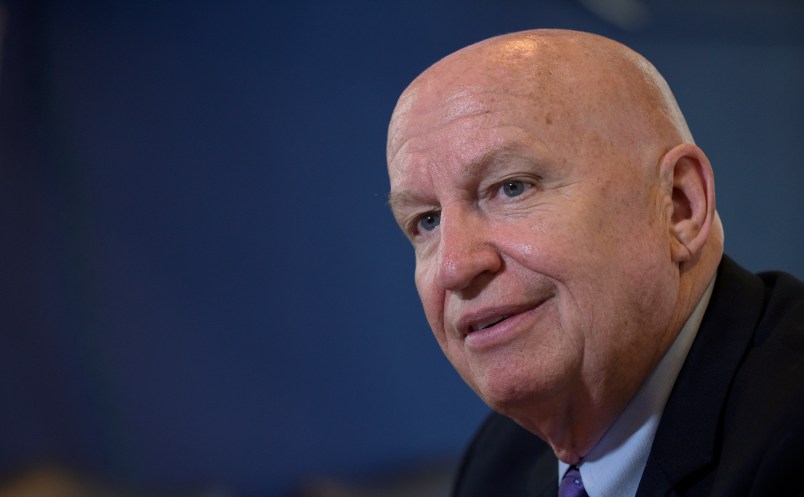Republicans are torn about what to do on taxes.
The party is having internal discussions right now about whether Obamacare taxes should be repealed immediately or whether keeping some or all of them in place until an Obamacare replacement is ready would give them the revenue necessary to pay for their own replacement bill.
It is a key question (among many) that Republican leaders are working through right now, but it’s significant because it pits two pillars of Republican orthodoxy against each other.
One the one hand, Republicans want to scrap as much of Obamacare as they can and as fast as they can do it. Obamacare taxes are part of what they’ve been railing against for these last six years. But, on the other hand, Republicans want to ensure their plans for replacing Obamacare are paid for and taking away taxes now only to raise them later on could lead to major backlash. Not to mention scrapping taxes could leave a big whole in the federal budget as Republicans move to transition away from Obamacare.
The question of revenue is one of the main reasons that Republicans are beginning to rethink their strategy to repeal Obamacare without a clear replacement.
“It’s hard to allay a fear like, if you do away with all the revenues and continue subsidies you’re throwing $116 billion in a mud puddle. I don’t know how you alleviate that kind of concern. It’s just real,” Corker said Monday night. “It seems to me that if you’re going to keep providing subsidies you ought to keep generating some revenues to pay for it. It’s difficult to allay the concern that if you end it 3 yrs without a replacement, what Republican is going to vote for a tax increase to fund it? I don’t know any.”
The fears are widespread that Republicans could come in, repeal Obamacare and its taxes and then pass a replacement bill that would blow a major hole in the budget. Or, some fear that fiscal stalwarts would use the cost of a replacement plan as an excuse for never following through with a promise to replace Obamacare down the line.
“The closer you are to what the replacement looks like, the easier it is to make the decision about the taxes that are in place,” Isakson said. “If you are going to preserve some of the things about Obamacare that work– 26 year olds, the preexisting conditions and some of those things …you are going to have to have some way to pay for that, I would rather keep revenue that you’ve already got in place than repeal it and come back and charge some other tax.”
When Republicans sought to repeal Obamacare in 2015 with a reconciliation bill they knew would be vetoed by President Barack Obama, they got rid of many of the Obamacare taxes. Yet, an analysis by the left-leaning Center for Budget Priorities concluded getting rid of the taxes would cost the government about $670 billion. Even if repealing Obamacare saved the government $1 trillion as the CBO estimated, it wouldn’t leave much money or flexibility for Republicans to come up with their own alternative health care plan.
What once might have been an unthinkable position for Republicans – keeping a revenue stream from Obamacare in place– has just collided with their new reality and their responsibility to govern. If Republicans repealed Obamacare taxes now, it would most likely set them up to have to replace those taxes down the road if they seriously intended to develop a health care alternative.
“I would much rather be in a position to have revenue coming in during a transition period than to have to go back and raise a tax or try to get the votes to raise a tax,” said Sen. Mike Rounds (R-SD).
But Senate Republicans are only half the equation. House Ways and Means Chairman Kevin Brady (R-TX) (pictured) told TPM Tuesday morning that he was still committed to scrapping Obamacare taxes.
“I don’t think Americans should have to labor under the Obamacare prices or taxes any longer. I think we need to move swiftly to repeal those taxes. The exact length hasn’t been determined yet, but I’m in the camp that those taxes need to go because they are part and parcel with what is wrong,” Brady said.







They’ll futz with ACA, which will give holdouts permission to join in Medicaid expansion. The GOP will be heroes and run on scaring the rural white working folks that the DEMs will take away their FreedomJesusGunCare. Calling my shot.
Ryan: If we cut taxes to 0 for the rich and tax only the poor and middle class, we will generate so much revenue that Health Care will be free for all.
This would NOT be the case … If the GOP cared at all about the American people ! —
Why the f*ck should he care? TX doesn’t have any health care for their citizens. What’s the problem?
Good question because you’re right - we don’t have one thing for Texans except a lot of storefront emergency clinics.